Kelly Visits ASU NanoFab, Celebrates Innovation and Manufacturing at Work Thanks to Microelectronics Commons
The Microelectronics Commons will provide students hands-on learning opportunities and jobs in microchip technology
Kelly worked to create the Microelectronics Commons program in the CHIPS and Science Act and to ensure ASU was selected as one of the Hubs
Selected as a member of the Microelectronics Commons, ASU received $39.8 million for initial investments in staffing, infrastructure, and programs
Today, Arizona Senator Mark Kelly visited Arizona State University (ASU) to celebrate the investments from the Microelectronics Commons—a program Kelly secured in the Chips and Science Act he led in Congress—and witnessed how the university is playing a key role in making Arizona a center for microchip development and manufacturing.
First, Kelly discussed the university’s efforts to train new engineers and researchers for jobs in the field as a part of the Microelectronics Commons program with ASU’s Knowledge Enterprise Executive Vice President Sally Morton and faculty.
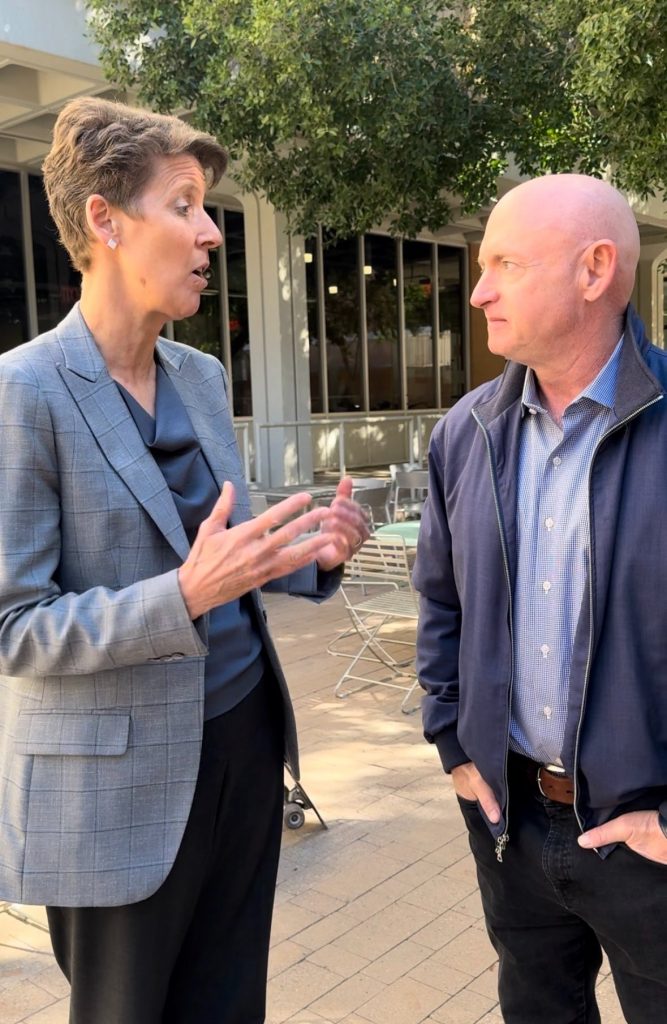
Then, Kelly participated in a student-led window tour to see classes going on in the NanoFab and hear from students about their career plans in microelectronics in Arizona.
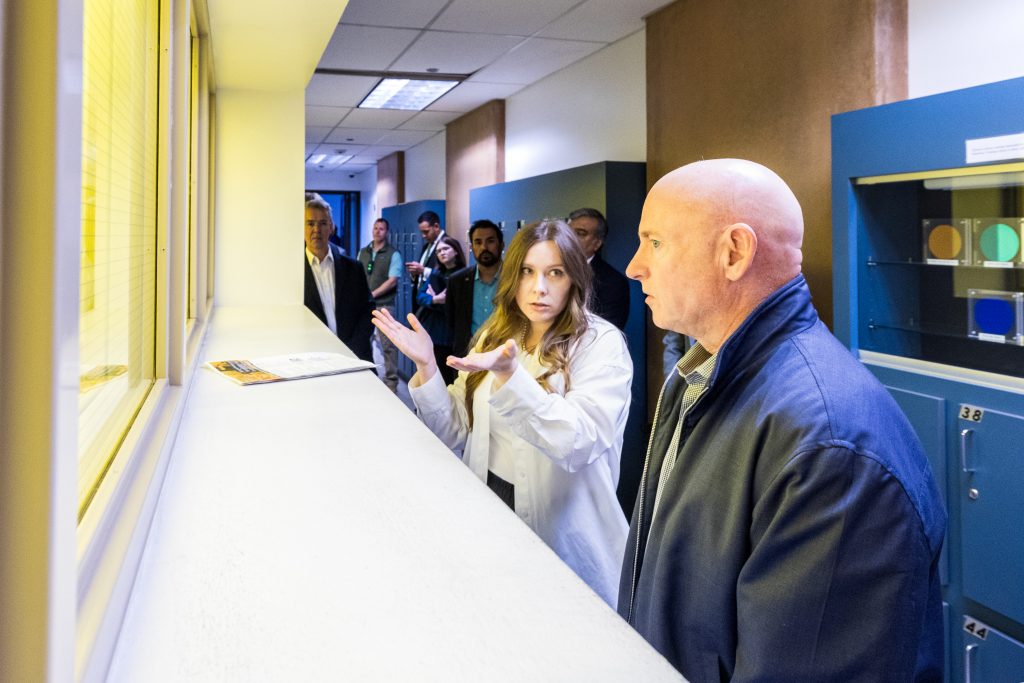
Later, Kelly engaged with students in a poster walk-through where they showed him projects they’re working on to help advance microelectronics research.
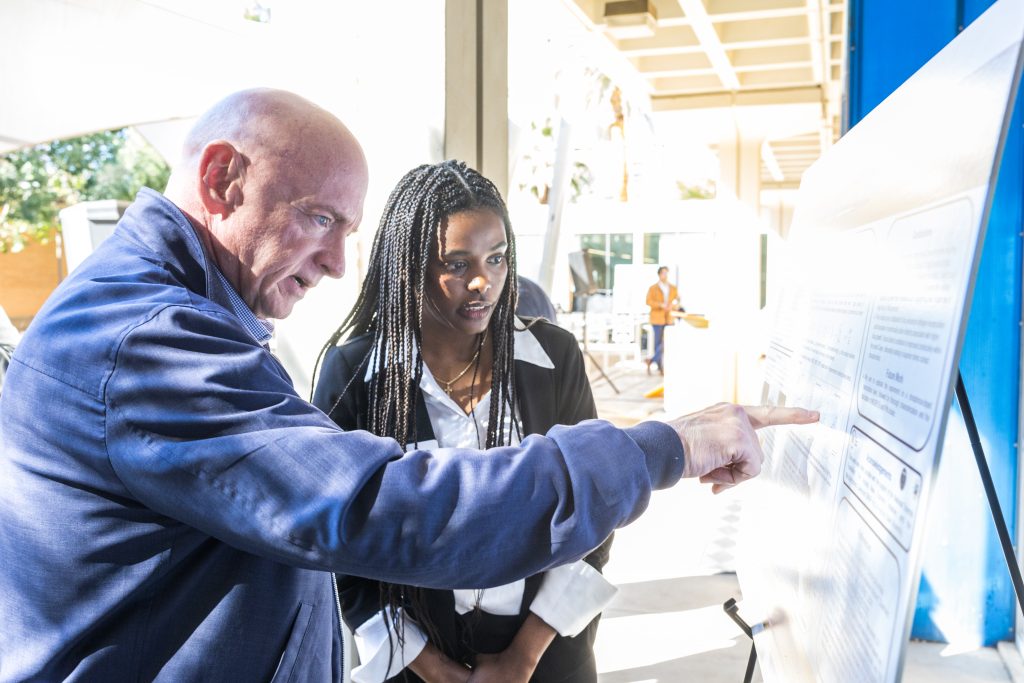
Kelly learned, for example, how students are using diamonds to produce more energy-efficient semiconductors and how one student is helping to prepare local veterans for careers in this field.
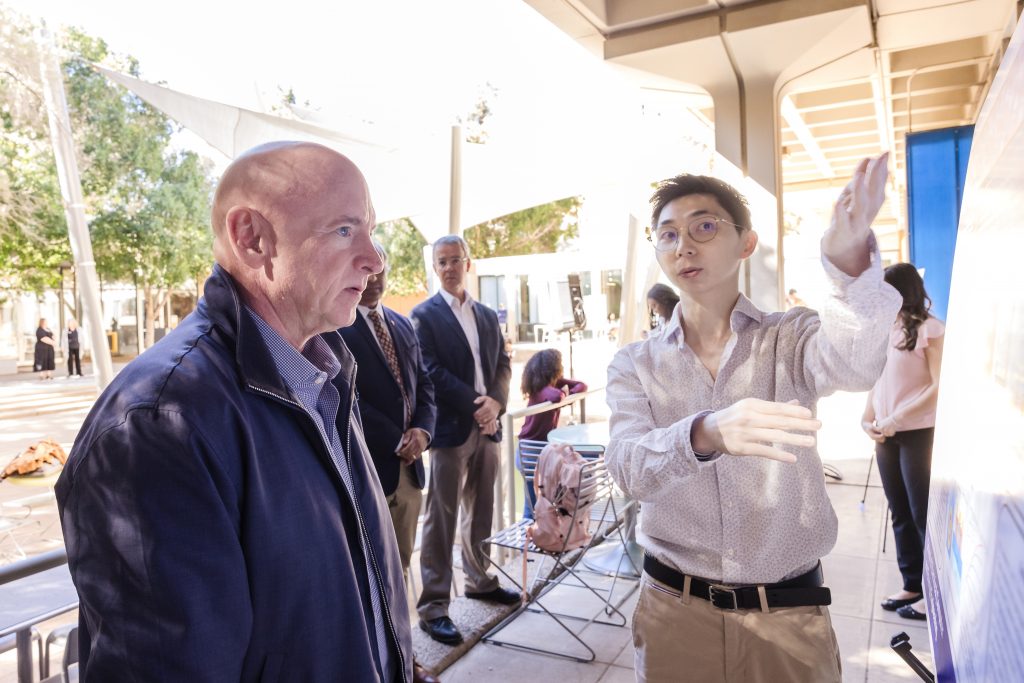
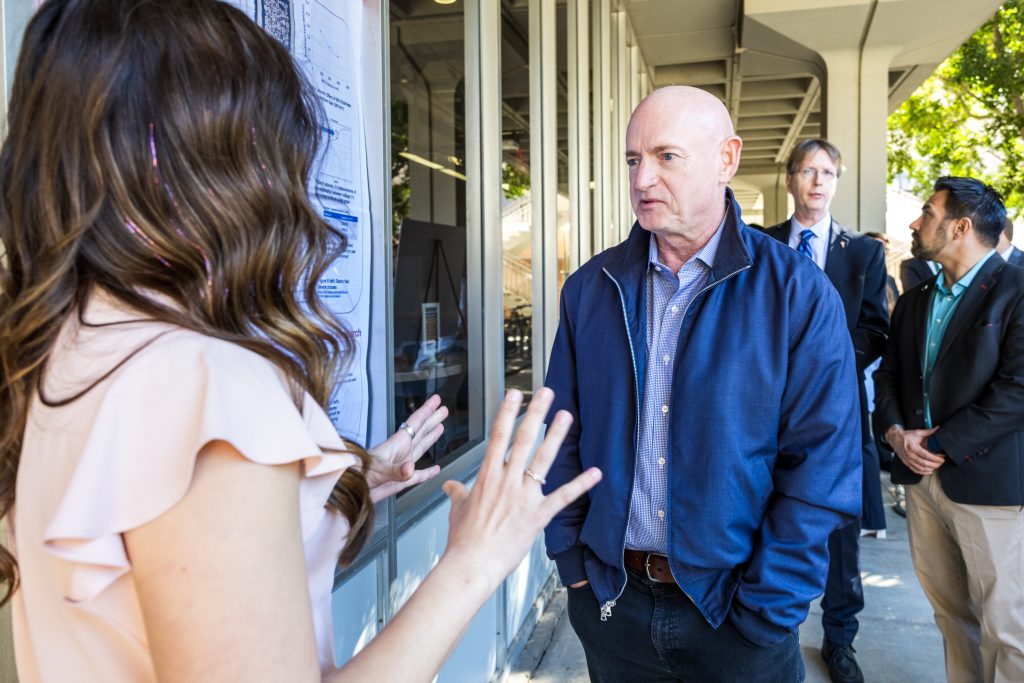
Senator Kelly’s CHIPS and Science Act established the Microelectronics Commons to support domestic microchip manufacturing, research, and development and address critical gaps in U.S. semiconductor innovation. In September 2023, the Southwest Advanced Prototyping Hub, led by ASU, was selected to be funded through the program, marking the first official allocation of funding through the CHIPS and Science Act. The program establishes a network of university-based prototyping and testing facilities that enables researchers to fully complete the lab-to-fab transition of microchip technologies within the United States.
